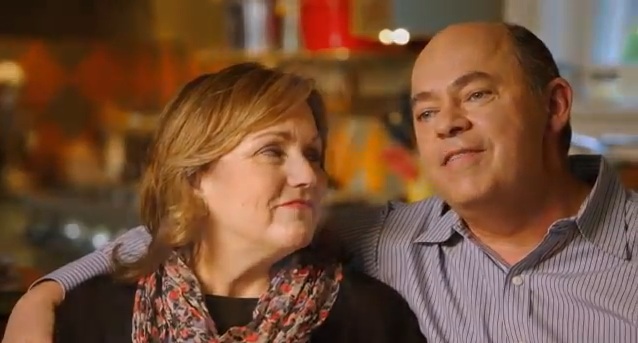Four states are voting on gay marriage in November, and marriage equality groups are airing TV commercials hoping to garner support for our side. And yet, there’s something a little strange about these ads—the Associated Press reports that there is a conspicuous lack of actual gay people speaking for themselves.

Gay rights groups are spending tens of millions of dollars on ads that will air to key TV markets, hoping to change the minds of people currently against marriage equality, sway people who are on the fence, and solidify the votes of those who seem to already be accepting of the LGBT community when it comes to marriage. However, these ads have almost exclusively featured straight people talking about the issue. Is that a bad thing?
Opinions are a little bit mixed when it comes to that question.
Some activists, like Wayne Besen, director of Vermont-based gay rights group Truth Wins Out, does not support the current ads, saying, “If we don’t show ourselves, people aren’t going to get comfortable with who we are.” Bil Browning, a Washington, D.C.-based gay activist and writer, agrees, pointing out that we are using this strategy with no proof that it will work. “We’re never going to win if we can’t show our faces,” Browning said. “It looks like we have something to hide, and we don’t.”
On the other hand, people like Matt McTighe, campaign manager of Mainers United for Marriage, argue that in order to target people who are not yet on board with marriage equality, we need to speak to “a typical voter’s mind.” He said, “The simple truth is that we are trying to win over the people that are not yet with us. … I’m a gay man, and the general rule of thumb for me is that an ad that meets my emotional needs is not necessarily the thing that’s going to change a typical voter’s mind about gay or lesbian people.”
When it comes to these ads, I’m personally torn. On the one hand, I understand that playing politics means participating in a calculated game, and that sometimes concessions must be made in order to win the end goal. On the other hand, I hate the idea that we as an LGBT community cannot be present and vocal in ads that affect us and might change our very existences, just because some voters may not be able to handle it.
Things may change when we can prove if these TV ads are successful when it comes to the polls. Until then, I’m not sure how I feel. What do you think?
Photo: youtube.com





























